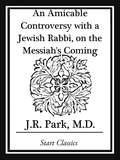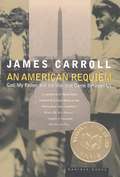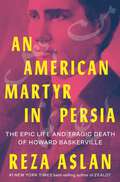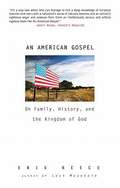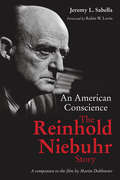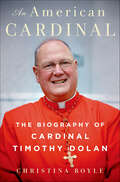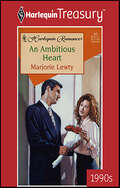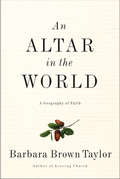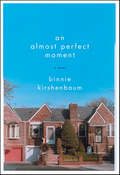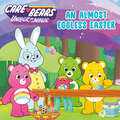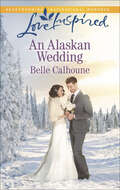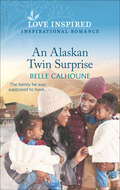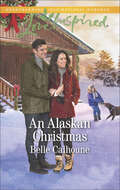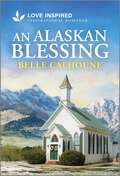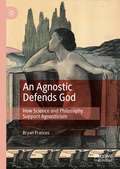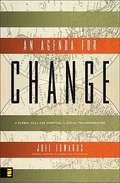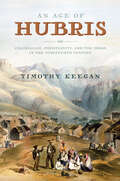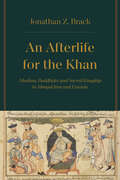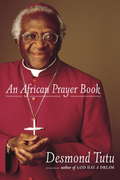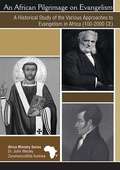- Table View
- List View
An Amicable Controversy with a Jewish Rabbi, on the Messiah's Coming
by J. R. Park"The testimony of Jesus in the spirit of prophecy." Few, perhaps, of those who read the Scriptures are fully aware of the extent to which the language of them abounds in metaphor; yet is this knowledge indispensable to the right understanding of both the Old and the New Testament, and especially the prophetic parts of these books. If Christ be the Messiah, his kingdom is a spiritual one, and what relates to it must be spiritually understood. We marvel at the blindness which prevents the Jews from perceiving in prophecy the numerous intimations of a spiritual Messiah, all of which appear to us to have been distinctly fulfilled in the person of Christ; and yet that very blindness to their spirituality is what prevents ourselves from understanding other prophecies relating to the same subject. The happy state which the world may attain to, under the universal prevalence of true religion, it is more easy to imagine, than to describe; for a volume would hardly suffice to enumerate all the blessings it is calculated to afford. The cessation of foreign war, with all the miseries attending it; the end of all tyranny and oppression at home; of injustice and misrule, are the most distinctly announced, and their benefit perhaps the most obvious. But their influence on society is limited in comparison with the wide diffusion of happiness that would ensue from the improvement in private life, and the amelioration of individual character.
An American Type: A Novel
by Henry Roth“His early novel Call It Sleep was his Ulysses. His late work An American Type is his Grapes of Wrath.”—Thane Rosenbaum, Los Angeles Times This “glorious, evocative, literary novel for the ages” (Los Angeles Times) has finally taken its place within the great canon of American fiction. Set during the Great Depression, against a backdrop of New York’s glimmering skyscrapers and Los Angeles’s seedy motor courts, this autobiographical work concludes the unparalleled saga of Henry Roth, whose classic Call It Sleep, published in 1934, went on to become one of Time’s 100 best American novels of the twentieth century. With echoes of Nathanael West and John Steinbeck, An American Type is a heartrending statement about American identity and the universal transcendence of love.
An American Requiem: God, My Father, and the War that Came Between Us
by James CarrollNational Book Award winner: This story of a family torn apart by the Vietnam era is &“a magnificent portrayal of two noble men who broke each other&’s hearts&” (Booklist). James Carroll grew up in a Catholic family that seemed blessed. His father, who had once dreamed of becoming a priest, instead began a career in J. Edgar Hoover&’s FBI, rising through the ranks and eventually becoming one of the most powerful men in the Pentagon, the founder of the Defense Intelligence Agency. Young Jim lived a privileged life, dating the daughter of a vice president and meeting the pope—all in the shadow of nuclear war, waiting for the red telephone to ring in his parents&’ house. James fulfilled the goal his father had abandoned, becoming a priest himself. His feelings toward his father leaned toward worship as well—until the tumult of the 1960s came between them. Their disagreements, over Martin Luther King, Jr. and the civil rights movement; turmoil in the Church; and finally, Vietnam—where the elder Carroll chose targets for US bombs—began to outweigh the bond between them. While one of James&’s brothers fled to Canada, another was in law enforcement ferreting out draft dodgers. James, meanwhile, served as a chaplain at Boston University, protesting the war in the streets but ducking news cameras to avoid discovery. Their relationship would never be the same again. Only after Carroll left the priesthood to become a writer, and a husband with children of his own, did he begin to understand fully the struggles his father had faced. In An American Requiem, the New York Times bestselling author of Constantine&’s Sword and Christ Actually offers a benediction, in &“a moving memoir of the effect of the Vietnam War on his family that is at once personal and the story of a generation . . . at once heartbreaking and heroic, this is autobiography at its best&” (Publishers Weekly).
An American Martyr in Persia: The Epic Life And Tragic Death Of Howard Baskerville
by Reza AslanIn this erudite and piercing biography, best-selling author Reza Aslan proves that one person’s actions can have revolutionary consequences that reverberate the world over. Little known in America but venerated as a martyr in Iran, Howard Baskerville was a twenty-two-year-old Christian missionary from South Dakota who traveled to Persia (modern-day Iran) in 1907 for a two-year stint teaching English and preaching the gospel. He arrived in the midst of a democratic revolution—the first of its kind in the Middle East—led by a group of brilliant young firebrands committed to transforming their country into a fully self-determining, constitutional monarchy, one with free elections and an independent parliament. The Persian students Baskerville educated in English in turn educated him about their struggle for democracy, ultimately inspiring him to leave his teaching post and join them in their fight against a tyrannical shah and his British and Russian backers. “The only difference between me and these people is the place of my birth," Baskerville declared, “and that is not a big difference.” In 1909, Baskerville was killed in battle alongside his students, but his martyrdom spurred on the revolutionaries who succeeded in removing the shah from power, signing a new constitution, and rebuilding parliament in Tehran. To this day, Baskerville’s tomb in the city of Tabriz remains a place of pilgrimage. Every year, thousands of Iranians visit his grave to honor the American who gave his life for Iran. In this rip-roaring tale of his life and death, Aslan gives us a powerful parable about the universal ideals of democracy—and to what degree Americans are willing to support those ideals in a foreign land. Woven throughout is an essential history of the nation we now know as Iran—frequently demonized and misunderstood in the West. Indeed, Baskerville’s life and death represent a “road not taken” in Iran. Baskerville’s story, like his life, is at the center of a whirlwind in which Americans must ask themselves: How seriously do we take our ideals of constitutional democracy and whose freedom do we support?
An American Immigrant: A Novel
by Johanna Rojas VannA Colombian American journalist tries to save her career by taking an assignment somewhere she never thought she&’d go—Colombia—in this heartwarming debut novel about rediscovering our family stories.&“A beautiful homage to a mother&’s bravery and to the grace and grit that is our inheritance.&”—Alicia Menendez, MSNBC anchor and creator and host of the Latina to Latina podcastTwenty-five-year-old Melanie Carvajal, a hardworking but struggling journalist for a Miami newspaper, loves her Colombian mother but regularly ignores her phone calls, frustrated that she never quite takes the time to understand Melanie&’s life. When the opportunity arises for a big assignment that might save her flagging career, Melanie follows the story to the land of her mother&’s birth. She soon realizes Colombia has the potential to connect her, after all these years, to something she&’s long ignored: her heritage, the love of her mother, her family, and the richest parts of herself. Colombia offers more than a chance to make a name for herself as a writer. It is a place of untold stories.Inspired by real-life events, An American Immigrant is a story of culture and community, of abiding commitment to family, and of embracing our culture and the generations that have come before.
An American Gospel
by Erik ReeceFrom the award-winning author of Lost Mountain, a stirring work of memoir, spiritual journey, and historical inquiry. At the age of thirty-three, Erik Reece's father, a Baptist minister, took his own life, leaving Erik in the care of his grandmother and his grandfather-also a fundamentalist Baptist preacher, and a pillar of his rural Virginia community. While Erik grew up with a conflicted relationship with Christianity, he unexpectedly found comfort in the Jefferson Bible. Inspired by the text, he undertook what would become a spiritual and literary quest to identify an "American gospel" coursing through the work of both great and forgotten American geniuses, from William Byrd to Walt Whitman to William James to Lynn Margulis. The result of Reece's journey is a deeply intimate, stirring book about personal, political, and historical demons-and the geniuses we must call upon to combat them. .
An American Conscience: The Reinhold Niebuhr Story
by Jeremy L. SabellaReinhold Niebuhr (1892–1971) was an inner-city pastor, ethics professor, and author of the famous Serenity Prayer. Time magazine's 25th anniversary issue in March 1948 featured Niebuhr on its cover, and Time later eulogized him as "the greatest Protestant theologian in America since Jonathan Edwards." Cited as an influence by public figures ranging from Billy Graham to Barack Obama, Niebuhr was described by historian Arthur Schlesinger Jr. as "the most influential American theologian of the twentieth century." In this companion volume to the forthcoming documentary film by Martin Doblmeier on the life and influence of Reinhold Niebuhr, Jeremy Sabella draws on an unprecedented set of exclusive interviews to explore how Niebuhr continues to compel minds and stir consciences in the twenty-first century. Interviews with leading voices such as Jimmy Carter, David Brooks, Cornel West, and Stanley Hauerwas as well as with people who knew Niebuhr personally, including his daughter Elisabeth, provide a rich trove of original material to help readers understand Niebuhr's enduring impact on American life and thought.CONTRIBUTORS (interviewees) Andrew J. Bacevich David Brooks Lisa Sowle Cahill Jimmy Carter Gary Dorrien Andrew Finstuen K. Healan Gaston Stanley Hauerwas Susannah Heschel William H. Hudnut III Robin W. Lovin Fr. Mark S. Massa, SJ Elisabeth Sifton Ronald H. Stone Cornel West Andrew Young
An American Conscience: The Reinhold Niebuhr Story
by Jeremy L. SabellaReinhold Niebuhr (1892–1971) was an inner-city pastor, ethics professor, and author of the famous Serenity Prayer. Time magazine's 25th anniversary issue in March 1948 featured Niebuhr on its cover, and Time later eulogized him as "the greatest Protestant theologian in America since Jonathan Edwards." Cited as an influence by public figures ranging from Billy Graham to Barack Obama, Niebuhr was described by historian Arthur Schlesinger Jr. as "the most influential American theologian of the twentieth century." In this companion volume to the forthcoming documentary film by Martin Doblmeier on the life and influence of Reinhold Niebuhr, Jeremy Sabella draws on an unprecedented set of exclusive interviews to explore how Niebuhr continues to compel minds and stir consciences in the twenty-first century. Interviews with leading voices such as Jimmy Carter, David Brooks, Cornel West, and Stanley Hauerwas as well as with people who knew Niebuhr personally, including his daughter Elisabeth, provide a rich trove of original material to help readers understand Niebuhr's enduring impact on American life and thought.CONTRIBUTORS (interviewees) Andrew J. Bacevich David Brooks Lisa Sowle Cahill Jimmy Carter Gary Dorrien Andrew Finstuen K. Healan Gaston Stanley Hauerwas Susannah Heschel William H. Hudnut III Robin W. Lovin Fr. Mark S. Massa, SJ Elisabeth Sifton Ronald H. Stone Cornel West Andrew Young
An American Cardinal: The Biography of Cardinal Timothy Dolan
by Christina BoyleThe most powerful Roman Catholic leader in the United States had humble beginnings. Timothy Michael Dolan was born in Maplewood, Missouri in 1950. From an early age, those around him knew that he would become a priest. Through college and seminary, his power and spirituality grew. He was formally ordained in 1976. In 2009, he was made Archbishop of New York. Several months later he was elevated to cardinal. There were clear signs that the ailing Pope Benedict XVI saw him as a bright hope for the future. During the 2013 conclave, Vatican experts seriously wondered if he would be chosen to lead the Catholics of the world. The cardinal's rise is not, however, without its controversies. He was one of the Catholic leaders who dealt, harshly say some, with abusers and the abused in the church's sex scandal. He is a consummate player who doesn't shy away from picking a political battle. Christina Boyle's An American Cardinal is a book about power and the Roman Catholic church today framed by the life of a man who might someday become the first American pope.
An Ambitious Heart
by Marjorie Lewty"I never tackle anything unless I know I can win!"Adam Trent hadn't changed-still ambitious, deeply attractive and clearly convinced that he could walk back into Carolyn's life as casually as he had left it nine years ago. Then he had broken her heart-but she was older and wiser now! If she had to work with Adam, she would keep him at arm's length. But Adam's arms were all too persuasive, and as for his kiss...
An Altar in the World: A Geography of Faith
by Barbara Brown TaylorIn her critically acclaimed Leaving Church ("a beautiful, absorbing memoir."--Dallas Morning News), Barbara Brown Taylor wrote about leaving full-time ministry to become a professor, a decision that stretched the boundaries of her faith. Now, in her stunning follow-up, An Altar in the World, she shares how she learned to encounter God beyond the walls of any church.From simple practices such as walking, working, and getting lost to deep meditations on topics like prayer and pronouncing blessings, Taylor reveals concrete ways to discover the sacred in the small things we do and see. Something as ordinary as hanging clothes on a clothesline becomes an act of devotion if we pay attention to what we are doing and take time to attend to the sights, smells, and sounds around us. Making eye contact with the cashier at the grocery store becomes a moment of true human connection. Allowing yourself to get lost leads to new discoveries. Under Taylor's expert guidance, we come to question conventional distinctions between the sacred and the secular, learning that no physical act is too earthbound or too humble to become a path to the divine. As we incorporate these practices into our daily lives, we begin to discover altars everywhere we go, in nearly everything we do.
An Almost Perfect Moment: A Novel
by Binnie KirshenbaumIn Brooklyn, in the Age of Disco, Valentine Kessler -- a sweet Jewish girl who bears a remarkable resemblance to the Virgin Mary of Lourdes -- has an unerring gift for shattering the dreams and hopes of those who love her. Miriam, her long-suffering mother, betrayed and anguished by the husband she adores, seeks solace in daily games of mah-jongg with The Girls, a cross between a Greek Chorus and Brooklyn's rendition of the Three Wise Men, who dispense advice, predictions, and care in the form of poppy-seed cake and apple strudels. When her greatest fear for Valentine is realized, Miriam takes comfort in the thought that it couldn't get any worse. And then it does.Sagacious, sorrowful, and hilarious, An Almost Perfect Moment is a novel about mothers and daughters, star-crossed lovers, doctrines of the divine, and a colorful Jewish community that once defined Brooklyn.This P.S. edition features an extra 16 pages of insights into the book, including author interviews, recommended reading, and more.
An Almost Eggless Easter (Care Bears: Unlock the Magic)
by Alexandra WestCelebrate Easter with the Care Bears in this 8x8 book based on an episode of the animated Care Bears: Unlock the Magic series.When the Easter Bunny loses his eggs in a Silver Lining stream, the Care Bears rescue them--only to discover the eggs have lost all their color! Can the Care Bears use their belly-badge powers to help the Easter Bunny recolor his eggs and save Easter? Read along to find out!
An Alaskan Wedding (Alaskan Grooms #1)
by Belle CalhouneA Town Called Love Reporter Grace Corbett has the lead of a lifetime. The city girl moves to Love, Alaska, where the mayor's "Operation Love" is matching women from across the country with hunky Alaskan men. Grace pretends to be a woman looking for romance, and her act gets a lot easier when she starts to fall for rugged sheriff Boone Prescott. Grace vowed she'd never let herself love again, but in cold and beautiful Alaska, her heart is thawing for Boone. Still, to win the lawman she'll have to confess everything...and hope that Operation Love can manage one more happy ending.
An Alaskan Twin Surprise (Home To Owl Creek Ser. #2)
by Belle CalhouneDiscover this sweet romance set in a snow covered Alaskan town, part of the Home to Owl Creek series.His runaway bride is back… With twins!The last person Gabriel Lawson expects to find in town is Rachel Marshall—especially with twin toddlers in tow. Gabriel refuses to risk his heart again on the woman who left him at the altar years ago. But working to renovate her mother’s house means he must spend time with Rachel and her adorable twins…and soon he can’t help but wish they were his family. From Love Inspired: Uplifting stories of faith, forgiveness, and hope.Home to Owl Creek:Book 1: Her Secret Alaskan Family Book 2: An Alaskan Twin SurpriseBook 3: Alaskan Christmas Redemption
An Alaskan Secret: An Uplifting Inspirational Romance (Home to Hearts Bay #1)
by Heidi McCahanComing home as a single dad… with a seven-year secret Back home in Hearts Bay, Alaska, Asher Hale&’s past has caught up with him. His son Cameron&’s new reading tutor, Tess Madden, is actually Cameron's mother—but she doesn't know it. Their teenage romance is one neither has forgotten, but Asher&’s secret lies between them. Now he will have to risk it all. Because telling the truth is the only path to a family reunion.From Love Inspired: Uplifting stories of faith, forgiveness and hope.Home to Hearts Bay Book 1: An Alaskan SecretBook 2: The Twins' Alaskan Adventure
An Alaskan Christmas: An Uplifting Inspirational Romance (Alaskan Grooms #6)
by Belle CalhouneA single mom starts over in Alaska and discovers love just in time for the holiday season in this inspirational romance—now a Harlequin movie, Love Alaska.After inheriting a gift shop in Love, Alaska, single mom Maggie Richards is ready for a new beginning—while her little boy is ready for a new daddy! But Maggie has no time for love—she wants to open the shop in time for Christmas, something she’ll do with help from childhood friend Finn O’Rourke. Finn’s on board to help Maggie—but not with the romance rumors that swirl around them like snow. Like Maggie, he’s hiding too many secrets to ever wed. So why do Maggie and her little boy make him dream of finding an unusual gift under the tree—a ready-made family?
An Alaskan Christmas Promise: An Uplifting Inspirational Romance (K-9 Companions #11)
by Belle CalhouneA Christmas to cherish… And a secret to protect. This needs to be the best Christmas Kit O&’Malley has ever seen—because she may not be able to see another. Diagnosed with failing vision, it takes all her determination to stay focused on what makes her happy: her daughter, her service-puppy-in-training and the puppy&’s trainer, Leo Duggan. But they can&’t reach their Christmas joy together until Kit&’s secret comes to light… A K-9 COMPANIONS TALEFrom Love Inspired: Uplifting stories of faith, forgiveness and hope.K-9 Companions Book 1: Their Unbreakable Bond by Deb KastnerBook 2: Finding Her Way Back by Lisa CarterBook 3: The Veteran's Vow by Jill LynnBook 4: Her Easter Prayer by Lee Tobin McClainBook 5: Earning Her Trust by Brenda MintonBook 6: Guarding His Secret by Jill KemererBook 7: An Unlikely Alliance by Toni ShilohBook 8: The Cowboy's Journey Home by Linda GoodnightBook 9: A Reason to Stay by Deb KastnerBook 10: The Veteran's Holiday Home by Lee Tobin McClainBook 11: An Alaskan Christmas Promise by Belle CalhouneBook 12: A Steadfast Companion by Myra Johnson
An Alaskan Blessing: An Uplifting Inspirational Romance (Serenity Peak #2)
by Belle CalhouneAn infant on her doorstep… Might lead to the life she&’s always wanted When Skye Drummond finds an abandoned baby outside her family&’s general store, she&’s determined to foster the girl. But the only way she can is by agreeing to regular check-ins from Trooper Ryan Campbell—her ex-fiancé&’s best friend. Skye&’s convinced that Ryan somehow had a role in her breakup, but for the sweet baby, she&’ll play nice. Their tenuous friendship turns into something more as he helps her with the baby. But Ryan&’s ongoing investigation into the baby&’s parents threatens Skye&’s custody. Could it threaten any hope of a shared future? From Love Inspired: Uplifting stories of faith, forgiveness and hope.Serenity Peak Book 1: Her Alaskan ReturnBook 2: An Alaskan BlessingBook 3: His Secret Alaskan Family
An Agnostic Defends God: How Science and Philosophy Support Agnosticism
by Bryan FrancesThis book contains a unique perspective: that of a scientifically and philosophically educated agnostic who thinks there is impressive—if maddeningly hidden—evidence for the existence of God. Science and philosophy may have revealed the poverty of the familiar sources of evidence, but they generate their own partial defense of theism. Bryan Frances, a philosopher with a graduate degree in physics, judges the standard evidence for God’s existence to be awful. And yet, like many others with similar scientific and philosophical backgrounds, he argues that the usual reasons for atheism, such as the existence of suffering and success of science, are weak. In this book you will learn why so many people with scientific and philosophical credentials are agnostics (rather than atheists) despite judging all the usual evidence for theism to be fatally flawed.
An Agenda for Change
by Joel EdwardsThis is a compelling tract for our times (manifesto) addressed to evangelicals around the English-speaking world from the general director of the Evangelical Alliance. This umbrella group represents evangelical Christians in the United Kingdom and is part of the larger World Evangelical Alliance of 128 national and seven regional alliances including the National Association of Evangelicals in the USA. ?Written in an accessible style this short and readable manifesto issues a prophetic call to help set the agenda for evangelicals to: -Present Christ credibly the 21st century -Rehabilitate term "evangelical" as good news -Engage in spiritual and social transformation The book includes discussion questions to enable classes, groups, and teams to read and discuss the contents of the book. As the church faces challenges and opportunities, this book can serve as a catalyst to move the evangelical church forward to make a difference in the world by fostering spiritual and social transformation.
An Age of Hubris: Colonialism, Christianity, and the Xhosa in the Nineteenth Century (Reconsiderations in Southern African History)
by Timothy KeeganAn Age of Hubris is the first comprehensive overview of the impact of missionary enterprise on the Xhosa chiefdoms of South Africa in the first half of the nineteenth century, chronicling a world punctuated by war and millenarian eruptions, and the steady encroachment of settler land hunger and colonial hegemony. With it, Timothy Keegan contributes new approaches to Xhosa history and, most important, a new dimension to the much-trodden but still vital topic of the impact—cultural, social, and political—of missionary activity among African peoples.The most significant historical works on the Xhosa have either become dated, foreground imperial-colonial history, or remain heavily theoretical in nature. In contrast, Keegan draws fruitfully on the rich Africanist comparative and anthropological literature now available, as well as extant primary sources, to foreground the Xhosa themselves in this crucial work. In so doing, he highlights the ways in which Africans utilized new ideas, resources, and practices to make sense of, react to, and resist the forces of colonial dispossession confronting them, emphasizing missionary frustration and African agency.
An Afterlife for the Khan: Muslims, Buddhists, and Sacred Kingship in Mongol Iran and Eurasia
by Dr. Jonathan Z. BrackIn the Mongol Empire, the interfaith court provided a contested arena for a performance of the Mongol ruler’s sacred kingship, and the debate was fiercely ideological and religious. At the court of the newly established Ilkhanate, Muslim administrators, Buddhist monks, and Christian clergy all attempted to sway their imperial overlords, arguing fiercely over the proper role of the king and his government, with momentous and far-reaching consequences. Focusing on the famous but understudied figure of the grand vizier Rashid al-Din, a Persian Jew who converted to Islam, Jonathan Z. Brack explores the myriad ways Rashid al-Din and his fellow courtiers investigated, reformulated, and transformed long-standing ideas of authority and power. Out of this intellectual ferment of accommodation, resistance, and experimentation, they developed a completely new understanding of sacred kingship. This new ideal, and the political theology it subtends, would go on to become a central justification in imperial projects across Eurasia in the centuries that followed. An Afterlife for the Khan offers a powerful cultural and intellectual history of this pivotal moment for Islam and empire in the Middle East and Asia.
An African Prayer Book
by Desmond TutuThe great Archbishop of Capetown, South Africa, shares with us the simple but profound secrets of his extraordinary spiritual strength by unveiling his very own book of prayer. Prayer, our conversation with God, needs no set formulas or flowery phrases. It often needs no words at all. But for most believers, the words of others can be a wonderful aid to devotion, especially when these words come front faithful fellow pilgrims. The African Prayer Bookis just such an aid, for in this collection all the spiritual riches of the vast and varied continent of Africa are bravely set forth. Here we may delight in Solomon's splendid encounter with the Queen of Sheba, overhear the simple prayer of a penniless Bushman, and glory in the sensuous sonorities of the mysterious liturgies of the Egyptian Copts. Here are Jesus' own encounters with Africa, which provided him refuge at the beginning of his life (from the murderous King Herod) and aid at its end (in the person of Simon of Cyrene, who helped Jesus carry his cross). Here are the prayers of some of the greatest among the mothers and fathers of the Church -- Monica, Augustine, Clement of Alexandria, Cyprian of Carthag -- as well as the prayers from the African diasporas of North America and the Caribbean. From thunderous multi-invocation litanies to quiet meditations, here are prayers that every heart can speak with strength and confidence. Archbishop Desmond Tutu, who is for millions the very soul of Africa, is our guide on this unique spiritual journey. His introduction is destined to become a classic, his characteristic energy and optimism light our way, and the words of his favorite prayers (many composed by the Archbishop himself) will stay with us forever.
An African Pilgrimage on Evangelism
by John KurewaHow easily we forget that it was Africans who brought the gospel to Africa, not foreign missionaries! Evangelism has always been central to African Christianity, ever since Egyptians and Libyans returned home from Jerusalem following the day of Pentecost (Acts 2). In this brief history of the church in Africa, Dr. John Kurewa highlights the major approaches to evangelism that the church employed over the centuries, for better and for worse. Then, in historical context, Kurewa zeroes in on those distinctive methods of evangelism, proclamation and disciple formation that shaped a diverse yet vibrant African Methodism. Thanks to this historical review, we stand to gain fresh vision for ministries of evangelism that truly can fulfill the Great Commission--to make disciples of Jesus Christ.
